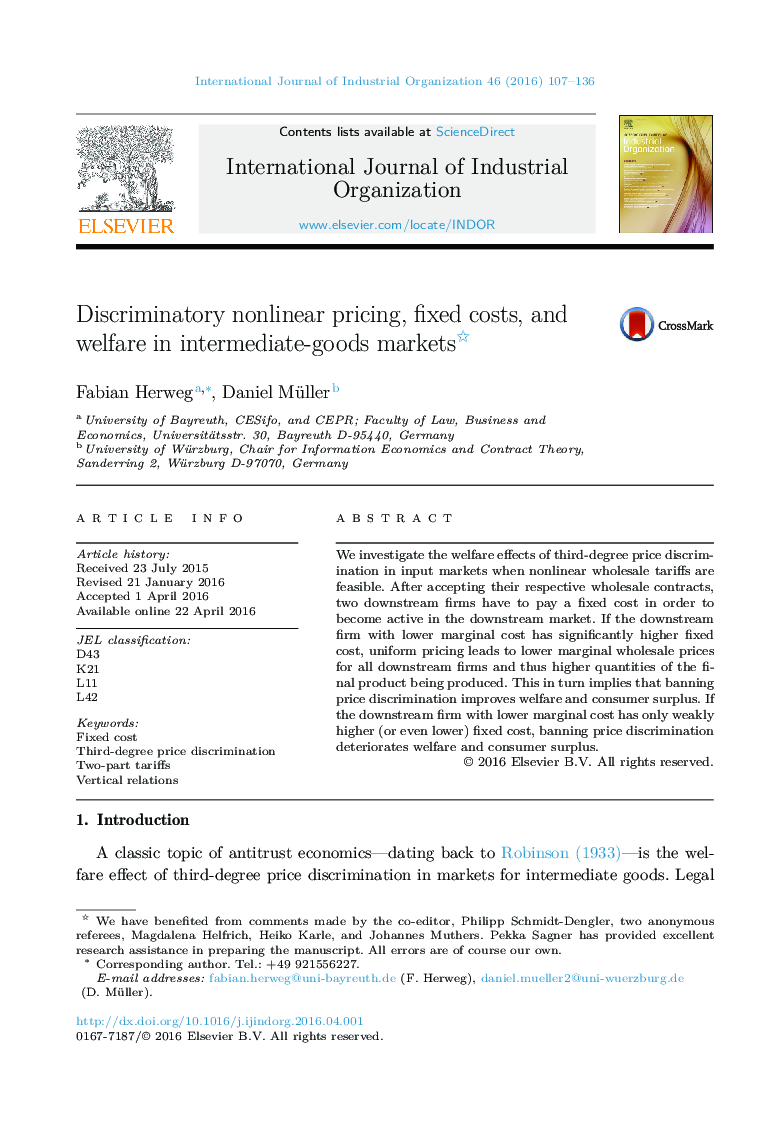| Article ID | Journal | Published Year | Pages | File Type |
|---|---|---|---|---|
| 5077872 | International Journal of Industrial Organization | 2016 | 30 Pages |
Abstract
We investigate the welfare effects of third-degree price discrimination in input markets when nonlinear wholesale tariffs are feasible. After accepting their respective wholesale contracts, two downstream firms have to pay a fixed cost in order to become active in the downstream market. If the downstream firm with lower marginal cost has significantly higher fixed cost, uniform pricing leads to lower marginal wholesale prices for all downstream firms and thus higher quantities of the final product being produced. This in turn implies that banning price discrimination improves welfare and consumer surplus. If the downstream firm with lower marginal cost has only weakly higher (or even lower) fixed cost, banning price discrimination deteriorates welfare and consumer surplus.
Related Topics
Social Sciences and Humanities
Economics, Econometrics and Finance
Economics and Econometrics
Authors
Fabian Herweg, Daniel Müller,
